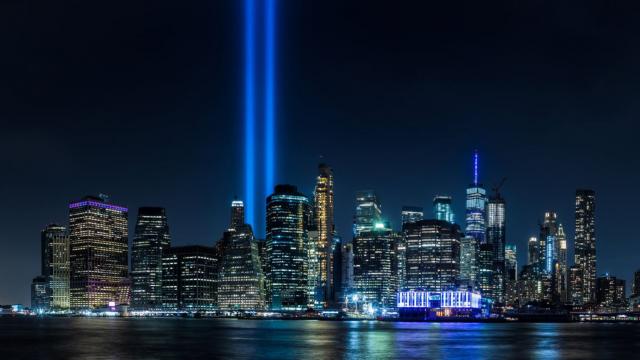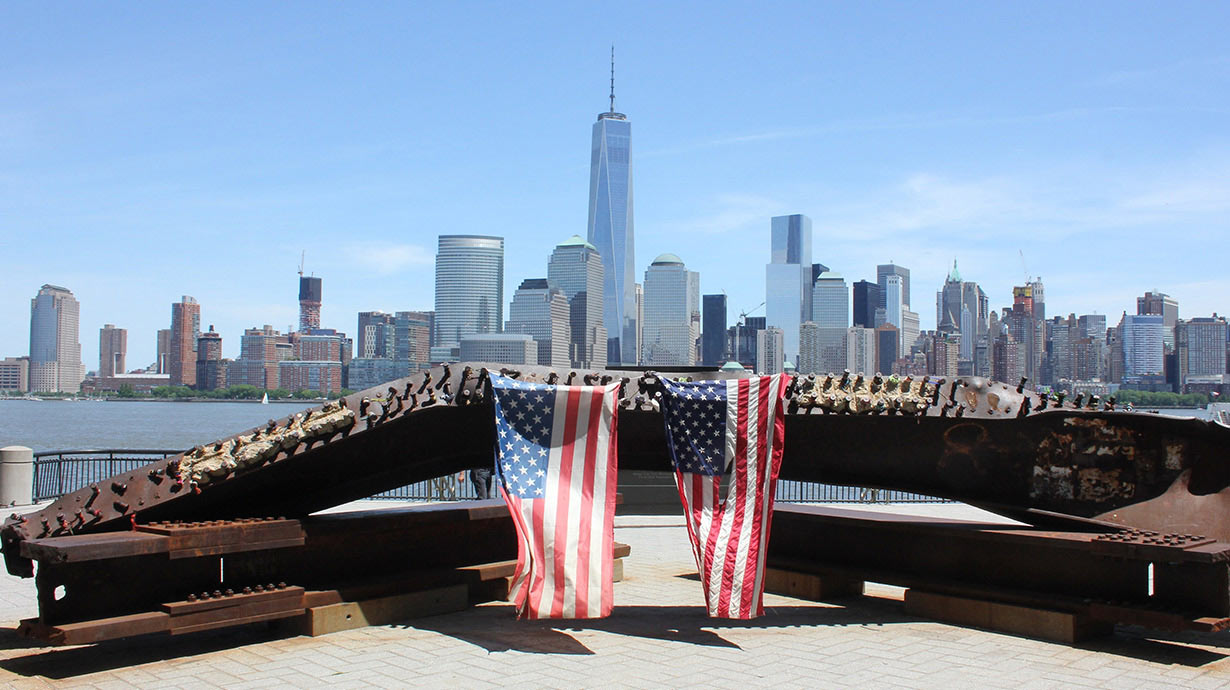
Even though I was just a 14-year-old kid in my freshman social studies class, I knew America would never be the same as I watched, with my equally horrified classmates, while the Twin Towers collapsed on 9/11. The trauma from that day remains real, and I still find myself queasy watching the footage of the planes slamming into what was once an iconic piece of the New York City skyline. But 20 years after that morning, it’s important to ask how free and safe we are as a country following two wars, countless bombing campaigns, trillions of dollars spent, and nearly one million lives lost around the world.
The answer is obvious: Americans are less free and less safe today than we were in 2001. Yes, Osama bin Laden was killed in 2011, and al-Qaeda is a shell of its former self. But Americans’ constitutional rights have been quietly eroded, piece by piece, since the 2001 passage of the USA PATRIOT Act, the creation of the Department of Homeland Security and the relentless growth of the unchecked, massive surveillance state that NSA contractor Edward Snowden exposed to the world in 2014.
Following the attacks, it was revealed that 15 of the 19 hijackers who killed more than 3,000 Americans on 9/11 were Saudi Arabian citizens. The other four were from Lebanon, Egypt and the United Arab Emirates. Notably, not one hijacker was from Afghanistan or Iraq – the countries the United States later spent nearly $7 trillion invading and occupying in two failed wars. Even though the Taliban provided safe haven to bin Laden following 9/11, and even though Saddam Hussein’s Iraq had a poor reputation for human rights, neither Hussein nor the Taliban were involved in carrying out the 9/11 attacks.
The United States relationship with Saudi Arabia has arguably never been better. While 9/11 conspirator Zacarias Moussaoui said the Saudi royal family financed al-Qaeda in the years prior to 9/11, and while a section of the 9/11 Commission’s report on Saudi involvement remains classified, the United States continues to sell weapons to the Saudi regime. The US has sold nearly $70 billion in arms to the Saudi royal family over the last decade alone.
Both President Joe Biden and former President Donald Trump have overlooked Saudi Crown Prince Mohammed bin Salman’s role in the gruesome assassination and dismemberment of journalist and legal permanent US resident Jamal Khashoggi. The Saudi royal family continues to act with impunity in its brutal war on Yemen, which has been regarded as one of the worst human rights crises of the past decade. And a lawsuit that families of 9/11 victims filed against the Saudi regime continues to be litigated.
At the same time, Americans’ personal freedoms have been significantly inhibited over the past 20 years. The United States’s surveillance capabilities grew exponentially following the passage of the Patriot Act just 45 days after 9/11, and continued to grow relentlessly as the act continued to be re-authorized throughout the early 21st century. As Snowden showed in his leaks of classified NSA documents, the government has the power to spy on emails, phone calls and text messages of US citizens without a warrant despite the 4th Amendment guaranteeing Americans freedom from unreasonable search and seizure.
Even foreign leaders were not immune from the US surveillance state. German Chancellor Angela Merkel’s phone calls were secretly monitored by the NSA, as were the private communications of former Brazilian President Dilma Rousseff. In fact, the NSA spied on the communications of roughly 35 world leaders, according to the documents Snowden leaked.
The United States has long been viewed as a beacon of freedom and opportunity for people all over the world, ever since the first European immigrants arrived on Ellis Island in the 1890s. But in the years following 9/11, the US significantly undermined that reputation by effectively legalizing extrajudicial detainment and even torture. The CIA has run “black sites” in at least 20 locations around the world in which detainees have been held in deplorable conditions and tortured.
More than two dozen detainees continue to be held in US custody at Guantanamo Bay in Cuba despite never being charged with crimes – a precedent that has since been upheld in US courts. The groundbreaking Senate Select Committee on Intelligence’s 2014 torture report found that the CIA subjected detainees to horrendous and often deadly conditions, with effectively no oversight.
Despite the sprawl of the surveillance state and steady increases in the US military budget throughout the War on Terror (from roughly $400 billion in 2000 to well over $700 billion today) terrorism remains a significant problem throughout the world. The emergence of the Islamic State of Iraq and Syria (ISIS) in the mid-2010s has led to numerous deadly Jihadist terror attacks across the Western world –- including Nice and Paris, France; Barcelona, Spain; London, England; and even New York City. Even though the Obama administration justified its 2011 ouster of Libyan President Moammar Gaddhafi by pointing to his regime’s repression and violence, ISIS continued to wreak havoc in Libya as recently as June. Seven years after Gaddhafi was killed, there were even open-air slave markets in Benghazi.
The reigning US foreign policy establishment has failed in a remarkable array of ways over the past two decades. The Taliban’s easy retaking of Afghanistan last month is further proof that the past 20 years of war-driven foreign policy have done little to make the world safer. The Biden administration deserves credit for standing by its decision to admit failure in ending the two-decade-long war in Afghanistan. Now, Biden has a unique opportunity to pursue a new direction: instead of war and aggression, the US could try diplomacy and dialogue as a way of forging a more peaceful world.
We’ll never forget 9/11. But here’s to hoping the lessons of the past 20 years also won’t be forgotten.
Carl Gibson is a freelance journalist whose work has been published in CNN, The Guardian, The Washington Post, The Houston Chronicle, Barron’s, Business Insider, and NPR, among others. Follow him on Twitter @crgibs.
















